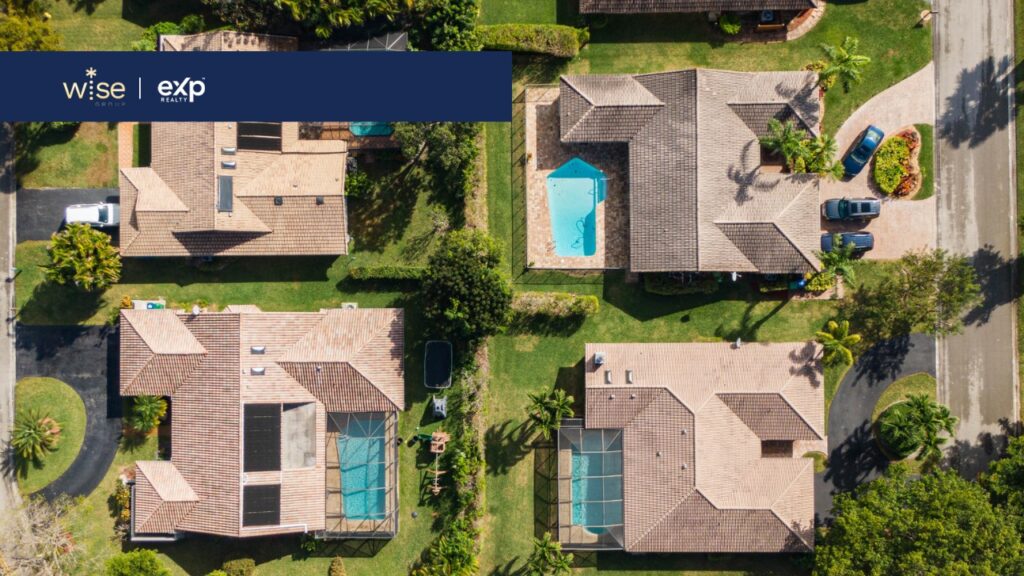Investing in real estate in Florida offers great opportunities, but one of the most important decisions you’ll have to make is whether to invest in residential or commercial property. Both options have their advantages and disadvantages, and the right choice will depend on your investment goals, risk profile, and the type of income you wish to generate.
In this blog, we explore the key aspects of each type of investment to help you decide which is the best option for you.
Residential Property Investment
Residential properties include single-family homes, condominiums, and apartments that are rented or sold to individuals or families. This is one of the most common types of investment for those starting in real estate.
Advantages of Investing in Residential Properties
High Constant Demand: There will always be a demand for residential properties, especially in growing areas like Miami, Orlando, or Fort Lauderdale. The demand for housing is driven by population growth and migration, both from local and international residents.
Lower Risk: Residential investments tend to be more stable in terms of demand. During economic crises, people still need a place to live, which can protect your investment from market volatility.
Easier to Invest: The process of purchasing a residential property is generally simpler than that of a commercial property. Additionally, there are more financing options and mortgage programs available for residential properties, making access to credit easier.
Consistent Passive Income: If you rent the property, you can generate a stable cash flow with monthly rents, providing you with passive income both in the short and long term.
More Flexibility in Selling or Renting: Residential properties offer more flexibility for renting, selling, or even short-term rentals (like Airbnb), depending on the area. You can easily switch between long-term and short-term rentals based on market conditions.
Disadvantages of Investing in Residential Properties
Lower Potential Returns: Residential properties often offer a lower return on investment compared to commercial properties, as rental income is limited to residential market rents.
Maintenance and Management: With residential tenants, you will likely experience more turnover and greater maintenance responsibilities. Additionally, managing a residential property can require more effort if you have multiple tenants.
Vacancy Risk: If your property remains vacant for long periods, you may face difficulties covering monthly costs such as mortgage, taxes, and maintenance. The risk of vacancy can impact your cash flow.
Commercial Property Investment
Commercial properties include office buildings, retail spaces, mixed-use buildings, and industrial properties that are leased to businesses. These investments are often associated with long-term lease agreements.
Advantages of Investing in Commercial Properties
Higher Return on Investment: Commercial properties generally tend to generate higher returns than residential ones, as businesses often pay higher rents and are willing to sign long-term leases, ensuring stable income.
Long-Term Lease Contracts: Lease agreements for commercial properties are typically longer, ranging from 5 to 10 years or more. This guarantees a steady cash flow without the need to frequently search for new tenants.
Less Direct Management: Commercial tenants usually assume most maintenance, repair, and insurance costs through NNN (Triple Net) leases, where they cover all operating expenses. This makes property management much simpler for the owner.
Appreciation Potential: Commercial properties in emerging areas or those with high business activity tend to appreciate quickly, offering you an excellent return if you decide to sell long-term.
Income Diversification: By investing in commercial properties, you can achieve greater income diversification, especially if you own a building with multiple rental spaces, such as a shopping center or office building. This reduces your dependence on a single tenant.
Disadvantages of Investing in Commercial Properties
Higher Initial Cost: Commercial properties usually have a higher purchase price than residential properties, requiring a significant initial investment. Additionally, financing may be more challenging to obtain and may come with higher interest rates.
Higher Risk During Recessions: Commercial properties are more exposed to economic fluctuations. During recessions, businesses may close, increasing the risk of prolonged vacancies and affecting income flow.
Difficulty Finding Tenants: Finding commercial tenants can be more challenging and may take longer compared to residential properties. If the property remains vacant, you could face significant financial losses until you find a new tenant.
Location Impact: The success of a commercial property is highly dependent on its location. If the area where you invest experiences economic decline or changes in local policies, your property could lose value quickly.
Aspect
Risk
Return
Initial Investment
Lease Contract
Demand
Maintenance
Liquidity
Residential Property
Low to moderate
Moderate, stable
Low to moderate
Short to medium-term (6 months to 1 year)
Constant (housing demand)
More involvement by owner
High, easy to sell
Commercial Property
Moderate to high
High, but market-dependent
High
Long-term (5 to 10 years or more)
Variable, depends on sector and economy
Less, commercial tenants cover more
Lower, harder to sell
What’s Best for You: Residential or Commercial Investment?
Residential Property: If you seek a stable investment with lower risks and consistent cash flow through rentals, a residential property is an excellent choice. It’s also ideal if you prefer a more accessible investment in terms of price and management. It’s perfect if you are a first-time investor or looking to diversify your portfolio.
Commercial Property: If you have more capital available and are willing to take on greater risks in exchange for potentially higher returns, a commercial property may be the best option. Additionally, if you prefer long-term leases and less involvement in daily management, this strategy is ideal for you.
At Wise Group, we are here to guide you in making key decisions about where to invest in Florida. Whether you’re interested in the residential market or seeking commercial opportunities, we can help you find the property that best fits your goals.




